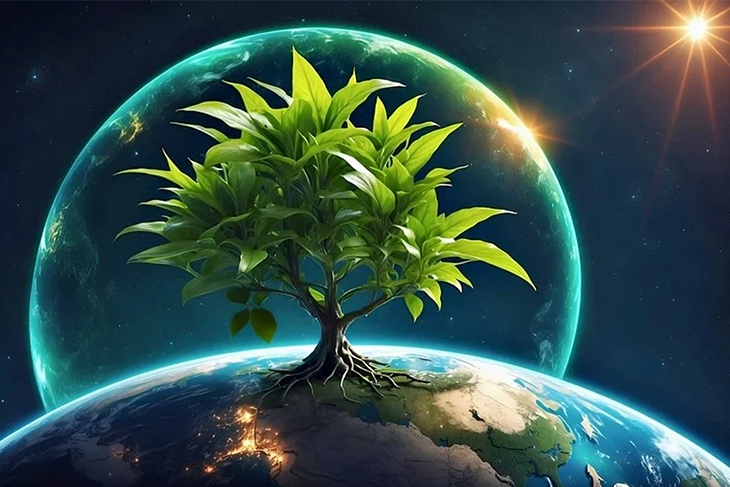“Earth Day” originated in a mobilisation in the year 1970 of ordinary people to raise awareness of environmental issues. More than 50 years later, people across the world commemorate the day by doing volunteer work, celebrating the ecological movement and speaking about possible pathways that will save the planet. World Earth Day 2024, on April 22, has the theme “Planet Vs Plastic”, urging us to confront the pressing issue of plastic pollution, pollution in all its forms, and its devastating impact on our environment.
An excellent start to this year’s Earth Day celebrations in India is the significant judgment on April 8, where the Supreme Court of India, recognised the right to be free from the adverse effects of climate change. This decision calls for futuristic climate action plans that prioritise the needs of all people, including the most vulnerable communities and advance mechanisms to stop climate change inducing activities.
The judgement is very much the need of the hour, as the “Climate Change 2021: Physical Science Basis”, the global report of IPCC Working Group I released in August 2021, has already testified to the “widespread and rapid changes that have occurred” which are “unprecedented in at least the last 200 years” and “affecting all inhabited areas”. The reality could be considerably worse.
The 2014 IPCC Working Group II report highlighted that increased vulnerabilities due to uneven development processes mainly affect marginalised groups. It emphasised that social, economic, cultural, and political marginalisation exacerbates vulnerability to climate change impacts. These vulnerabilities stem from intersecting inequalities in socioeconomic status, income, and discrimination based on gender, class, ethnicity, age, and disability.
Climate Change impacts farmers and rural workers. In 2023, farmer yields dropped by 5% due to the early onset of summer; climate change impacts rural workers’ incomes and habitats. As seen in a 2013 study by ActionAid Association, there has been a 56% decline in nomadic herds. Shrinking pasturelands challenge pastoralists’ livelihoods and livestock health. Not only do extreme weather events, which are increasing in intensity and frequency, make farming more difficult, but working in these conditions is also bad for health.
Climate Change impacts workers. Working in the open or closed workspaces increases the risk of heat stroke, exhaustion, cramps and rashes. India’s informal workers face increased precarities in the face of climate change.
Every year, floods, storms, heat and cold waves, rising sea levels, water stress and air pollution disrupt the lives of millions of city dwellers. The impact is felt most by the slum dwellers and vulnerable communities in the cities, those who both make and sustain urban towns and lives. This is so because they live in untenable areas of the cities more prone to natural disasters. The lack of protective infrastructure and overcrowding increase their vulnerabilities.
Thirty million workers in India’s coastal and fisheries communities face the multiple impacts of climate change. Several villages and lands are being lost to the sea. Urgent climate justice actions are necessary to protect vulnerable communities.
Thus, we can see that Climate Change affects the here and now. Its impact will worsen if we do not ensure environmental sustainability for all. On this Earth Day, let us explore fresh ways to save our planet.
Let us promote ecological documentation and monitoring to inform future developments with comprehensive surveys assessing ecosystems and human activities. A compensation and rehabilitation framework to safeguard communities affected by climate change would a step that will serve vulnerable communities well.
Effective environmental regulation, which hold all of us accountable for pollution, and encourage environmentally friendly action. Recognising nature’s rights is a good first step to protecting natural entities from harm. More robust institutional mechanisms are needed for monitoring and policy updates. There is a need to set up mechanisms to monitor plans, ensure compliance and address grievances. Climate commissions could be explored as an institutional mechanism.
On this Earth Day, let us re-iterate the need to make social, economic and ecological justice the aim of all human development.
Disclaimer: The article was originally published on Dailyhunt. The views expressed in the article are the author’s and do not necessarily reflect those of ActionAid Association.
 Author: Dr Heera Lal | Sandeep Chachra
Author: Dr Heera Lal | Sandeep Chachra

